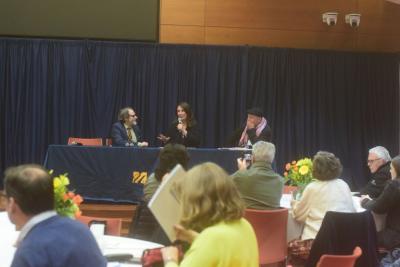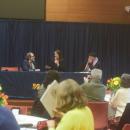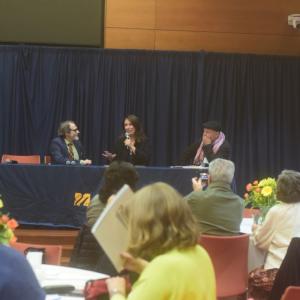UMass Dartmouth hosts colloquium on Portuguese history
UMass Dartmouth hosted an international colloquium on Portuguese migration and Mill Work in New England on Friday, Oct. 24 and Saturday,Oct. 25.
The colloquium focused on the book “Migration, Mill Work, and Portuguese Communities in New England” and featured many of the authors, editors and speakers with related areas of studies.
The book stemmed from a conference held in 2017 to confront a book published in 1923, “Two Portuguese Communities in New England,” which was written by someone with racist ideas surrounding Portuguese people, said Christiana Bastos, one of the editors of the new book.
“As a public institution, it helps us better make this information and scholarship available to the public and to the communities served by the university,” said Mario Pereira, who is the executive editor at the Center for Portuguese studies, and organizer of the event.
The first day consisted of panels and discussions about life for Portuguese people in the 20th century, including topics like politics and assimilation.
The second started with an analysis of the previous day, and then a showing of the documentary “Saudade” created by one of the editors of the book, Bela Feldman-Bianco.Feldman-Bianco and some of those in the documentary were on a zoom call to talk with attendees about the film.
One of the editors of the book, Christiana Bastos, was in attendance and gave the closing remarks.
“For the communities, [colloquiums are] a way to give them more, getting access to more tools, to come to terms with their own history, with collective history, to know there are resources to get their genealogy, the story of their ancestors,” said Bastos.
She said a point of this colloquium is to talk about the past and present, and to plan for the future of research on Portuguese history in New England.
“It’s pretty awesome, you can find more perspectives on the Portuguese,” said Thais Silveira, a PhD student in Luso-Afro-Brazilian Studies and Theory at UMass Dartmouth, “It’s always good that you can think about all the perspectives of the Portuguese culture, and political views and studies.”































